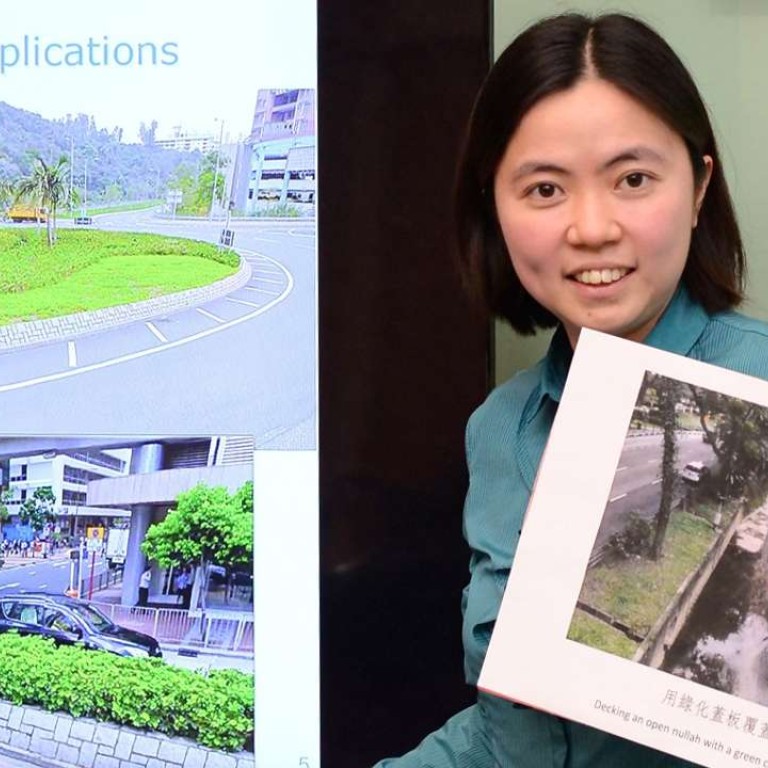
HKU researchers call for more sustainable drainage systems
Green rooftops that absorb water and porous pavements are two of the ideas
The Hong Kong government is being urged to promote a drainage system that addresses the city’s environmental needs, such as green rooftops that can absorb and store water and porous pavements.
Researchers from the University of Hong Kong’s engineering faculty warn the city is falling behind developed nations and are pushing government departments to implement sustainable stormwater drainage systems that can reduce adverse impacts on the environment, promote greenery, increase freshwater supplies and mitigate the heat island effect caused by human activities.
The idea is to use a natural method to let the environment absorb water
“The idea is to use a natural method to let the environment absorb water,” said May Chui Ting-fong, assistant professor of civil engineering, adding that sustainable systems can improve water quality and the health of residents in the area, as well as store and conserve water.
“Other countries use sustainable drainage systems but Hong Kong only has a few places. There are many opportunities.”
Greenery such as flower beds could be retrofitted to become a bioretention system that allowed surface water to flow into the greenery area, while watercourses could be covered with a green surface layer to allow water to filter through at a slower pace – an important flood control technique.
Although the Drainage Services Department has made attempts to naturalise drains and pipes, the system still focuses on flood control and is not built to preserve the environment, according to Chui.
The government should consider sustainable designs when building new drainage systems or retrofitting ones that need updating, she said.
To create a significant impact, 5 to 10 per cent of an urban area should implement sustainable designs, Chui said. Each element would cost about 20 to 30 per cent more than conventional systems, but infrastructure and energy costs would fall in the long run.
Incentives for developers to incorporate elements such as green rooftops included higher rents, Chui said. In a 2015 survey of 600 residents by the researchers, respondents were willing to pay HK$88 a month more on average for sustainable systems and about 1.8 per cent of the property price for private buildings that incorporated these elements.
“The government has to step first,” said Chui, who is collaborating with the Drainage Services Department to test and implement such elements.
The project received HK$455,975 from the Central Policy Unit’s Public Policy Research Funding Scheme in 2014.

